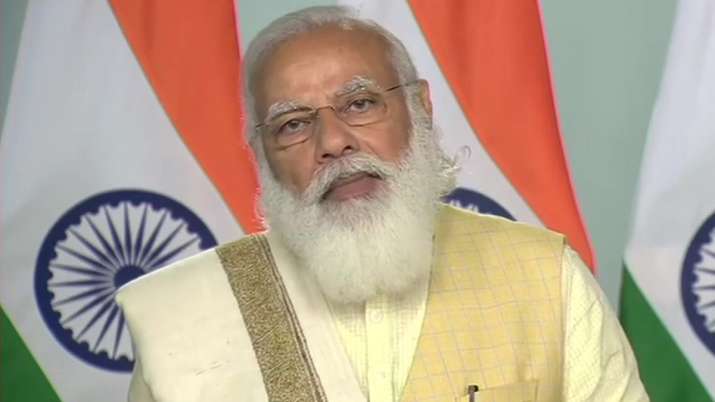Manas Dasgupta
NEW DELHI, Feb 17: Keeping up his immutable style of blaming the previous governments for everything bad and taking credit for everything that is good, the prime minister Narendra Modi on Wednesday held the previous governments responsible for the people of the country facing the burden of spurt in the fuel prices.
On a day when petrol crossed the ₹100 mark, Modi said the middle-class would not have been burdened if the previous governments had focussed on reducing India’s energy import dependence.
Without referring to the relentless increase in retail fuel prices, which are linked to international rates, he said India imported over 85% of its oil needs in the 2019-20 financial year and 53% of its gas requirement.
“Can a diverse and talented nation like ours be so energy import dependent?” he asked, addressing an online event to inaugurate oil and gas projects in poll-bound Tamil Nadu.
“I do not want to criticise anyone but I want to say (that) had we focused on this subject much earlier, our middle-class would not have been burdened,” he said.
Price of petrol crossed the ₹100 per litre mark in Rajasthan after fuel rates were hiked for the ninth day in a row. Since India imports the majority of its oil needs, retail rates are benchmarked to international prices, which have spiralled in recent weeks.
Opposition parties including Congress have criticised the price hikes, blaming it on the Modi government raising taxes to scoop out the benefit that arose from international oil rates plunging to a two-decade low in April/May last year. While global rates have rebounded with pick-up in demand, the government has not restored the taxes, which are at a record high.
According to estimates, the central and state taxes make up for 60% of the retail selling price of petrol and over 54% of diesel.
The Prime Minister further said it was a collective duty to work towards clean and green sources of energy as well as energy independence.
“Our government is sensitive to the concerns of the middle class. That is why India is now increasing the focus on ethanol to help farmers and consumers,” he said.
Ethanol extracted from sugarcane is being doped in petrol to reduce the requirement of imports. Currently, 8.5% of petrol is ethanol and this proportion is targeted to be raised to 20% by 2025, helping cut imports as well as give farmers an alternate source of income.
India, he said, was looking to cut energy import dependence as well as diversify its sources to reduce risks.
The focus now is also towards using renewable sources of energy, which by 2030 would form 40% of energy generated in the country, he said, listing measures such as increased share of solar power, focus on public transport, switching to LED bulbs, scrappage policy for vehicles and use of solar pumps in irrigation.
Modi further said India was looking to reduce energy import dependence through capacity building. “In 2019-20, we were fourth in the world in (oil) refining capacity. About 65.2 million tonnes of petroleum product have been exported. This number is expected to rise even further.”
Also, Indian firms have ventured overseas in the acquisition of oil and gas assets, which provide energy security.
“Today Indian oil and gas companies are present in 27 countries with an investment worth about ₹2.70 lakh crore,” he said.
Modi said the nation was looking to build a natural gas pipeline grid to boost usage of the environment-friendly fuel that would help cut carbon emissions.
“We have planned to spend ₹7.5 lakh crore in creating oil and gas infrastructure over five years,” he said. “A strong emphasis has been laid on the expansion of city gas distribution network by covering 470 districts,” he added.

